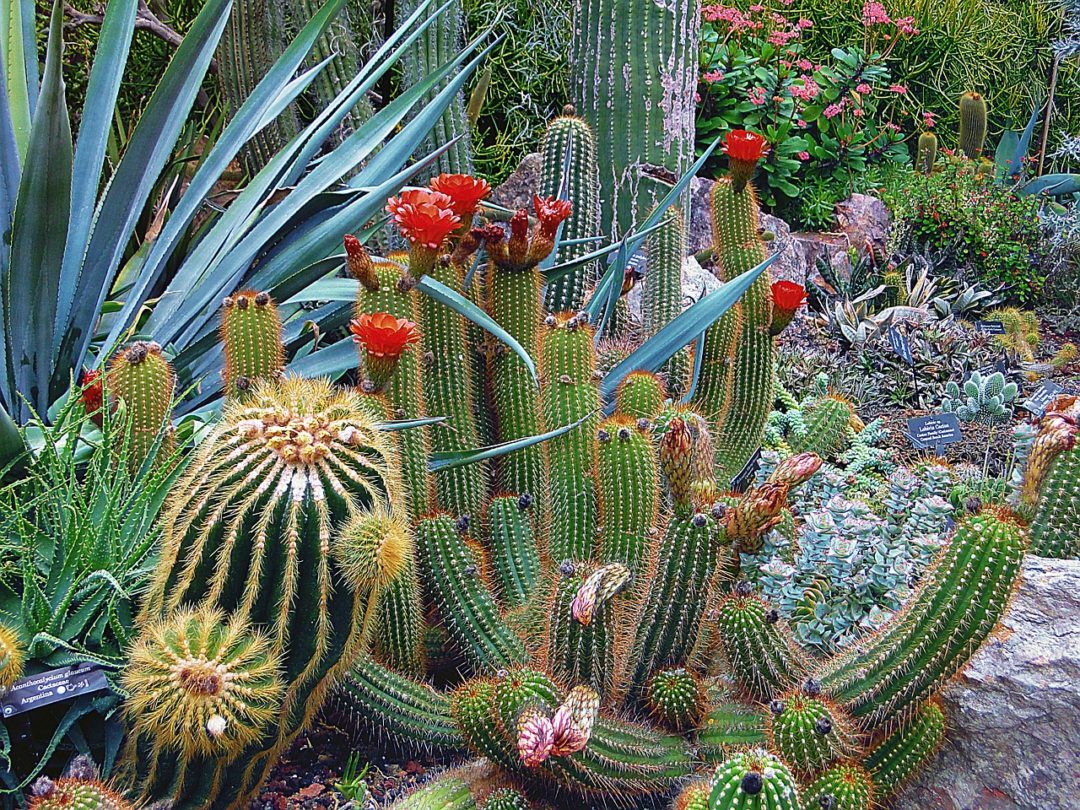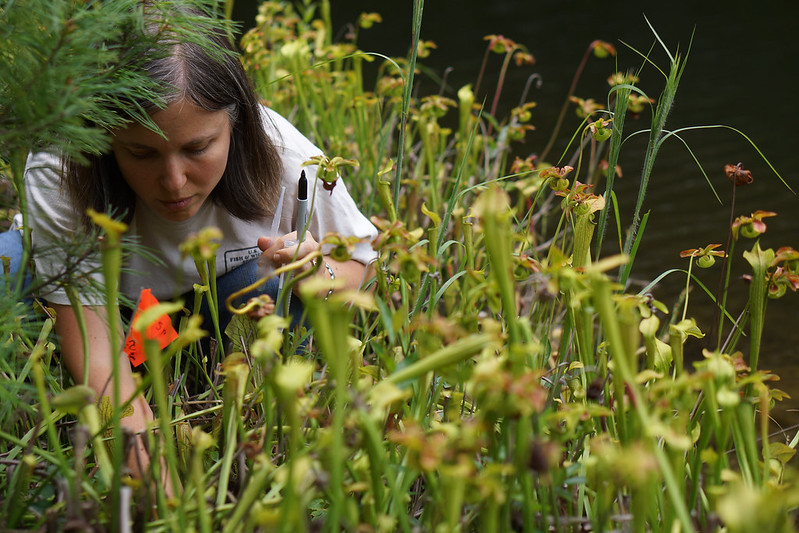
Do you have a green thumb? Do you enjoy working outdoors or in a laboratory? Are environmental concerns important to you? Do you want to cultivate knowledge that can be used to help farmers produce more profitable harvests? Plant science is an area that can provide great careers for people with a variety of different skill sets and interests. Keep reading to learn more about this discipline and the jobs for which it can prepare you.
What Is a Plant Science Degree?
Preparation for a Career Working With Plants
Plant science is a broad term with many more specific areas of expertise. A plant science degree might prepare you to work as a geneticist, studying the DNA of plants. It could also give you the background necessary to advise farmers on how to deal with an infestation of harmful insects. You might, after obtaining a plant science degree, go into forestry and plan conservation efforts to preserve a national park. Read on to learn more about doors for which plant science is the key.
What Kind of Classes Will You Take?

Image from Pixabay
High school and undergraduate classes that can help you obtain a plant science degree include mathematics, biology, chemistry, physics, and other sciences. Every different area of plant science has its own specific study requirements. Some plant scientists need to know statistics, specific computer software, farming technologies, artistic techniques, and even heavy machinery. As you refine your area of study, you might take classes in agricultural economics, biotechnology, botany, environmental science, or forestry, depending on your degree.
Getting the Most Out of Your Degree
If you are interested in plant science, you should choose your program of study carefully. Make sure the college or university you select provides courses in your chosen area and has top-notch facilities. Getting your degree online is usually not an option because plant science generally requires field work and laboratory research.
The Importance of Experience
Consider, also, work experience. Most employers will look for internships or other previous work that relates to the jobs they offer. Some organizations offer internships and hire the interns for full-time work after they graduate. You can find a college or university that partners with outside employers to place students in work-study programs.

Image by US Fish and Wildlife Service from Flickr
Examples of Organizations that Hire Plant Scientists:
- Altman Plants
- Arbor Day Foundation
- Dr. Pepper Snapple Group
- John Deere
- Plains, Grain, and Agronomy
- Smithsonian Gardens
- WESTCO
Examples of Organizations that Provide Internships:
- American Horticulture Society
- Chicago Botanic Garden
- Missouri Botanical Garden
- Wyerhaeuser
- Smithsonian Gardens
- The United States National Arboretum
Is There a Need for People With Degrees In Plant Science?
Reasons for the Need
New technologies and growing concern for the environment are contributing to a growing need for people with a plant science degree in some careers. For example, experts are needed to study endangered plant species and plan their conservation. Other specialists can now use new computer software programs to study the genetics of plans and breed desired characteristics.
Opportunities In Horticulture
Horticulture is a broad field that encompasses art, science, and technology. People with plant science degrees are needed in horticulture to study different species of plants. They use their knowledge to conserve species, solve problems in farming, and maximize profits in the food industry, among other tasks. Many do both field and lab work.
Opportunities In Forestry
Forestry pertains to the care and study of forests. A person who works in this field might develop best practices for protecting our natural resources. Fire prevention is another arena in which foresters play a big role. The timber, paper, and electrical industries hire foresters to help them plan and execute harvests. This field can demand a lot of physical strength and stamina. It can also require lab work.
Opportunties In Agriculture
Agriculture, the industry that deals with plant cultivation for food, is another field in which people with plant science degrees work. Depending on their degree, they might provide business management services for farms, or they might use science and technology to grow crops in the most profitable way. Bioprocessing and irrigation engineers, soil scientists and plant geneticists all find work in agriculture, along with many other specialists.
What Careers Are Available With a Plant Science Degree?
Agricultural Business Manager
This individual oversees many aspects of monetizing the farm. He or she maintains relations with vendors, manages human resources, organizes production operations, and ensures that all operations comply with the law.
Agricultural and Food Scientist
In this field, scientists work to make sure that the products companies sell comply with federal regulations pertaining to health and safety.
Agronomist
An agronomist understand the health of plants. He or she might work on a farm to create the healthiest possible environment for crops, considering elements like the composition of the soil, the control of pests, irrigation, and the best means of fertilization.
Biochemist or Biotechnologist
These scientists study the chemical and genetic factors that affect plants. They work on projects such as maximizing biofuel, developing new drugs, and engineering the DNA of crops. They find work with private companies, non-profits, government organizations, and universities.
Conservation Scientist
A conservation scientist is an environmental expert who studies the best way to maintain natural resources and balance ecosystems. They might be hired to private landowners or government agencies to assist in projects. They might also consult with farmers and ranchers to promote good environmental practices.
Entomologist
This career is not for someone who has a phobia of bugs! Entomologists study insects, especially for the purposes of pest control. They also learn about endangered species in order to maintain the balance of certain ecosystems. They can be employed in the fields of medicine, law, pharmacology, teaching, research, and agriculture.
Environmental Engineer
Environmental Engineers use technology to address the challenges of maintaining environmental health. They work with other scientists, companies, and organizations to plan conservation projects and develop responsible protocols.
Environmental Scientist
An environmental scientist uses scientific methods and equipment to study changes within the environment, specifically due to human impact.
Grounds Maintenance Worker
Outdoor, manual work, grounds maintenance refers to the landscaping and upkeep of trees, grass, and shrubbery within a defined area. The work is often seasonal.
Horticulturist
This is a broad term that applies to many people who work with plants in an artistic or scientific way. A horticulturist could be someone who cultivates crops on a farm, or someone who plans the aesthetic arrangement of flowers in the outdoor areas of a business complex. Their work involves plants that we eat, enjoy visually, or make into products.
Plant Breeder or Geneticist
A complex and highly scientific pursuit, plant genetics has many different subsets, including functional genomics, structural genomics, population genetic, and quantitative genetics. Plainly speaking, people in this field investigate how genes behave, where they are located, how they contribute to the evolution of organisms, and how they can be used to breed desired traits.
Plant Pathologist
Plant pathology refers to the study of disease within plants and the work being done to control it. Whether a virus, harmful bacteria, or another organism, plant pathologists will identify the cause of an infection and implement measures to restore or maintain the health of the affected plants. They need to understand how disease originates, how it affects plants (and people!), its life-cycle, and how to control it.
Soil Scientist
While it might not be immediately obvious, dirt expertise is actually an extremely sophisticated career! Soil scientists study the composition of soil, its classification, and how to map it. They perform experiments to determine qualities such as the fertility of the soil and its biological makeup. Their knowledge can be used in forestry, agriculture, and many other fields.
Toxicologist
Toxicologists study chemicals and other substances that can be harmful to plants and other organisms. On a larger scale, they determine how toxins interact with biological systems. Their work can help determine if a substance is dangerous. They also research how to control the dangerous substances once they have been identified.
Weed Scientist
A Weed scientist is someone who studies species of plants that are harmful to crops. They work with people in the agriculture industry to identify weeds and implement measures of control. They also carefully research how our efforts to reduce weeds will impact the environment.
Agricultural and Rural Development Specialist
In this profession, experts use their knowledge of agronomy and agricultural methods to help farmers in developing areas. They provide consultation for pest control, planting, irrigation, and harvesting, among other areas.
Conclusion
If you are looking to develop skills and acquire knowledge that will prepare you for a challenging career in a meaningful field, consider a plant science degree. Working with plants on a highly technical, scientific, or artistic level is something that a degree in plant science can enable you to do. Whether you are fascinated by plant DNA or having a desire to help farmers in developing countries support themselves, plant science could be the degree for you!
Featured Image from Pixabay


